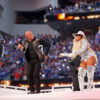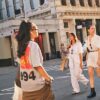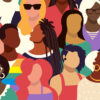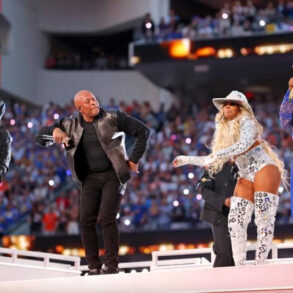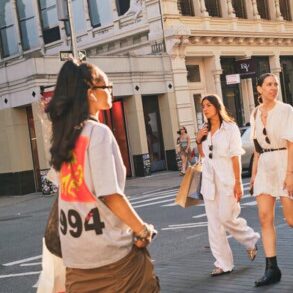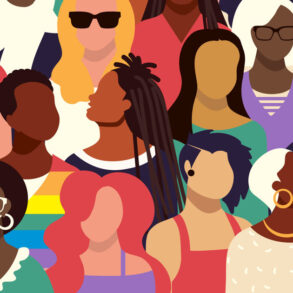The signs of hip hop influence on fashion is everywhere, from Pharrell Williams becoming Louis Vuitton’s men’s creative director to billion-dollar brands like Dr. Dre’s Beats headphones and retail mainstays like Diddy’s Sean John and Jay-Z’s Rocawear. Hip-hop has become the most popular musical genre in the U.S., with R&B/hip-hop having the largest share of total album consumption in 2022, according to entertainment data and insights company Luminate. hip hop influence on fashion has only continued to grow.
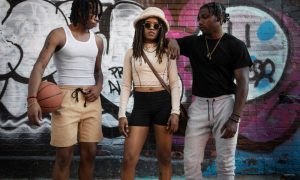
Hip hop music culture
It didn’t start out that way.
The hip hop music culture germinated 50 years ago as an escape from the poverty and violence of New York City’s most distressed borough, the Bronx, where few wanted to invest in its businesses or its people. Out of that adversity blossomed an authentic style of expression, one that connected with the city’s underserved Black and Latino teens and young adults, and filtered through to graffiti, dance and fashion.
“Hip-hop goes beyond the music,” said C. Keith Harrison, a professor and founding director for the University of Central Florida’s Business of Hip-Hop Innovation & Creative Industries certificate program. “Hip-hop always knew, as Nipsey Hussle would say, how to get it out of the trunk, and so they’ve always had to have innovative business models.”
Hip hop impact on fashion
That spirit of innovation has helped push hip hop music and culture past big business’ initial resistance to align with the genre of hip hop impact greatly and it becoming the most popular music form in the U.S. since 2017. Hip-hop’s impact on the $16 billion music industry and beyond is now so widespread, experts say it becomes difficult to quantify making hip hop fashion trends a rage.
Author Zack O’Malley Greenberg estimates that hip hop influence on fashion is such that its five wealthiest artists were worth nearly $4 billion in 2022 by themselves.
How has hip hop influenced fashion?
Hip-hop branding for artist is such that they have achieved that level of success because they are much more than their music. They are tastemakers and trendsetters in lifestyle-defining products from fashion to high-end champagne.
Because rappers often tell stories fans relate to or aspire to, weaving hip hop branding shout-outs into their rhymes and product placements into their videos becomes a powerful marketing tool.
In hip hop music and culture, that pressure to fit in and show off is heightened.
Probably no product has been as successful at connecting with hip hop fashion trends as footwear. Consequently, hip hop branding is such that rappers get their own sneaker lines without ever taking part in a sport, said Harlan Friedman, host and creator of the Sole Free podcast on sneakers and street culture.
Adidas hip hop branding
Adidas was the first major company that saw rappers as potential business partners, Friedman said. But they had to be convinced.
Even though the company had seen an unusual spike in sales of its Superstar shoes in the Northeast in 1986, it wasn’t ready to attribute that to rap group Run-D.M.C. and their hit “My Adidas”.
When company execs saw the group ask fans to show off their Adidas and thousands removed their shoes and waved them in the air at a Madison Square Garden performance, they were sold. They signed Run-D.M.C. to a $1 million deal that resulted in their own shoe line in 1988.
Now that hip hop influence on fashion has made it a multibillion dollar industry with widespread influence, it’s easy to forget it wasn’t always Courvoisier and Versace for its stars.
Apprehensions of hip hop fashion trends
Even after Adidas’ success, companies still balked at partnering with hip-hop acts because they felt that “having young Black and brown people wearing their clothing simply wasn’t on brand and, in many ways, it was kind of denigrating their brand,” said Krishnamurthy, in her forthcoming book, Fashion Killa: How Hip-Hop Revolutionized High Fashion, pop culture.
“But when that kind of money is being spent and people really saw the power that rappers had to change what somebody might wear they started taking notice,” she said.
Companies of all sorts now court rappers and their audiences, hoping to join the ranks of Timberlan which at first resisted associating with the genre it saw as being counter to its working-class base Hennessy cognac and anything Gucci as hip-hop approved brands.

